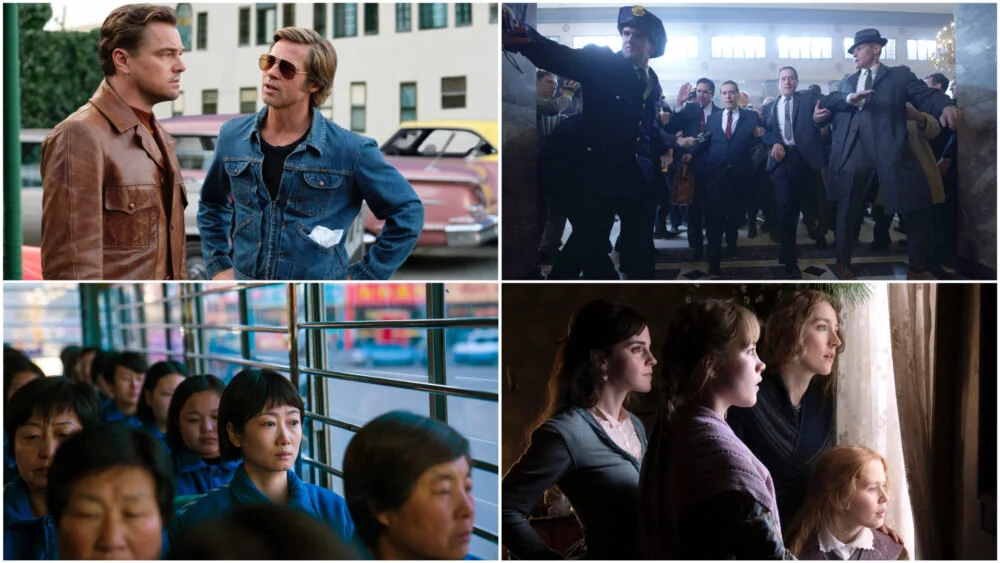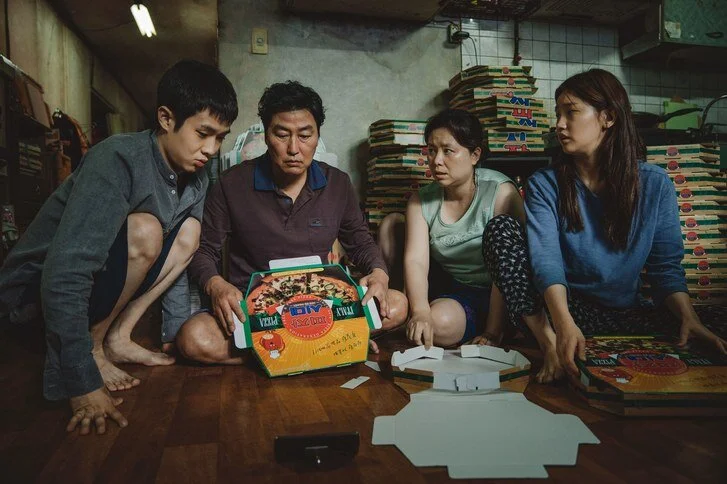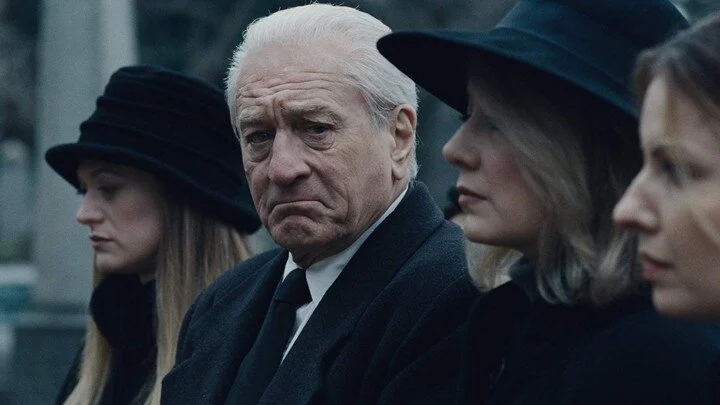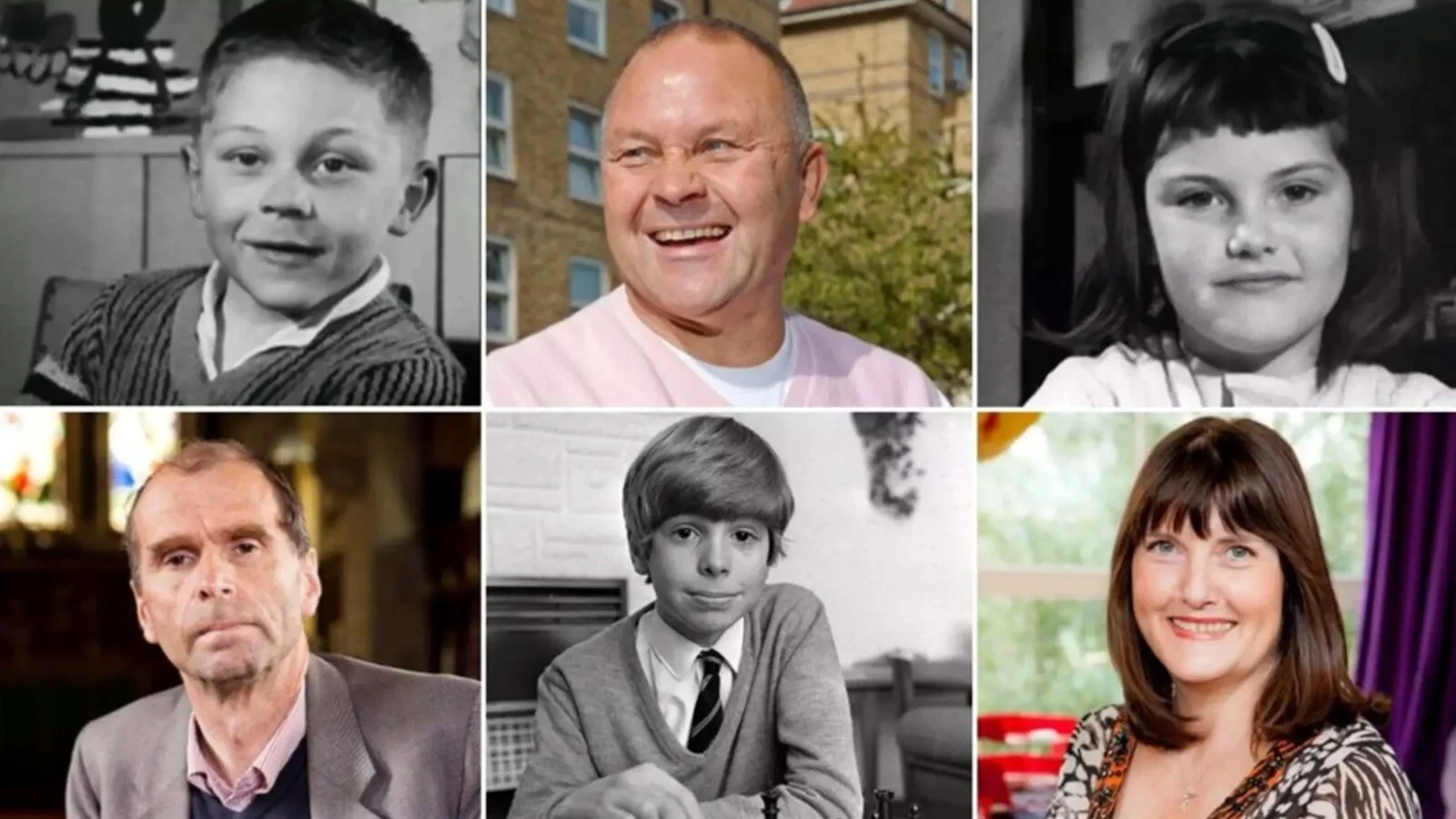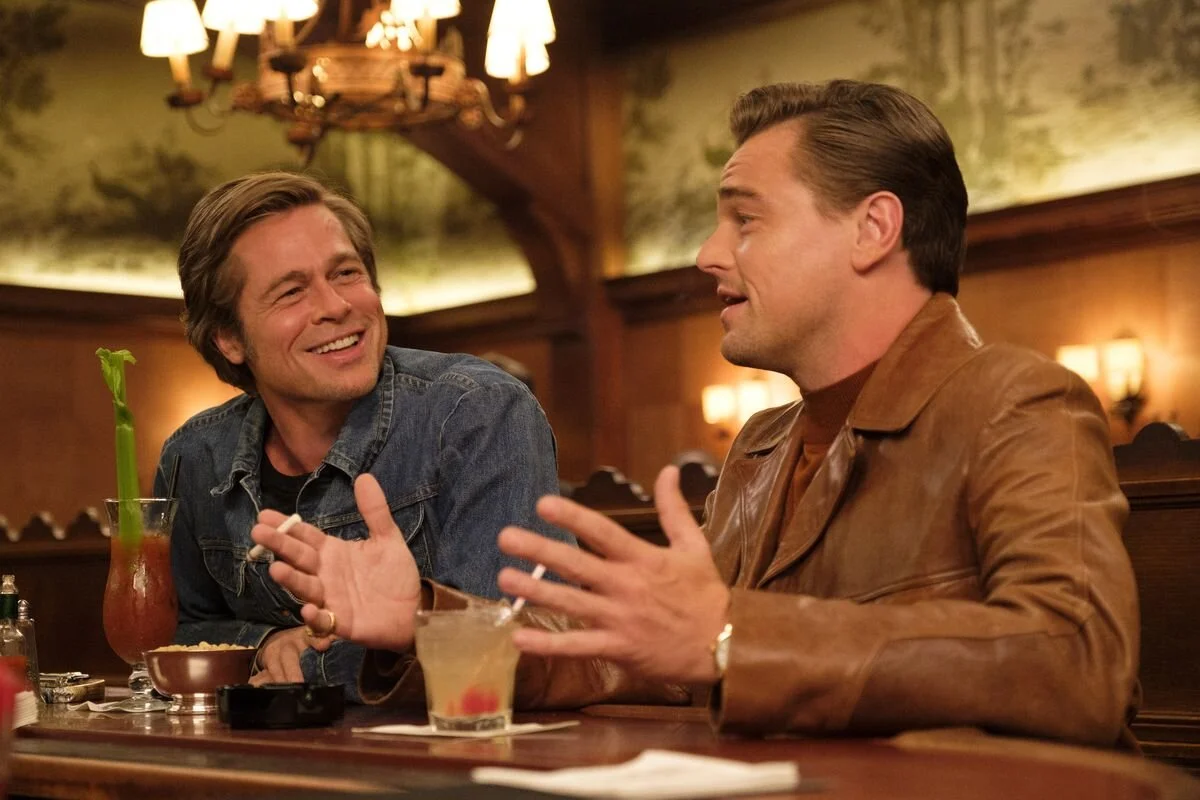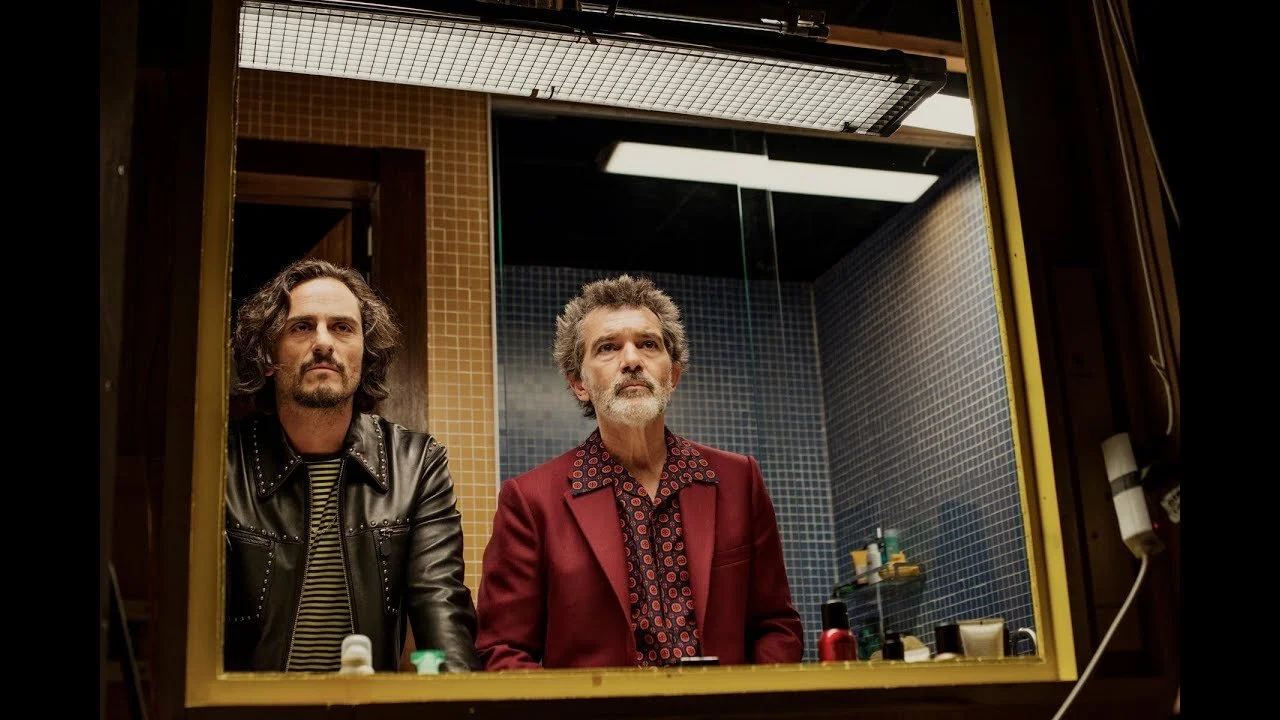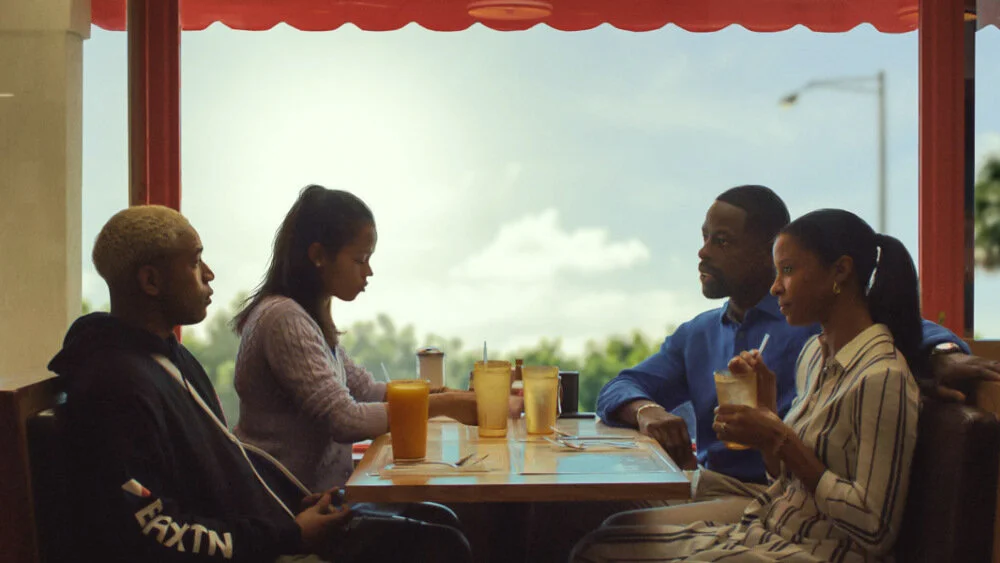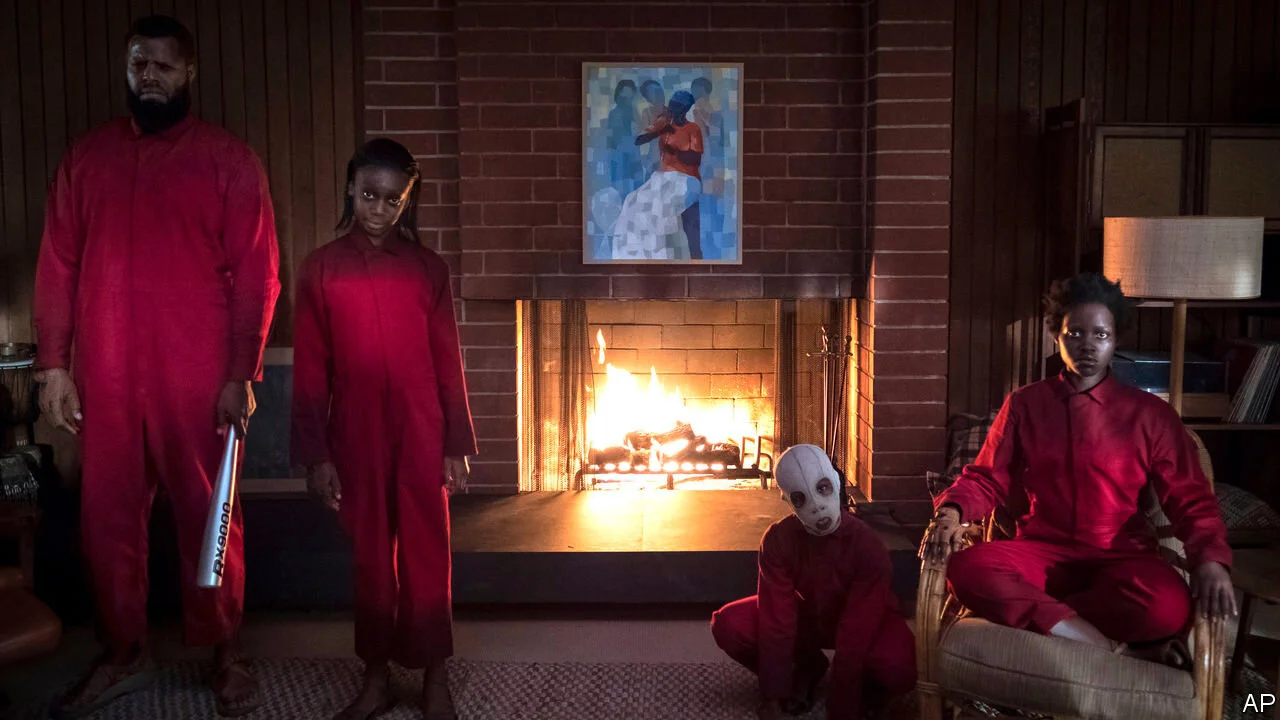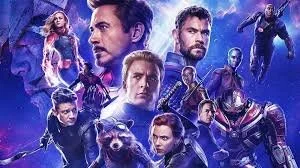Film Essay: Top Ten 2019
Best Movies 2019
For another perspective that I value as one of the best critic’s working, please check out Peter Canavese’s Top Ten Films at Grouchoreviews: http://grouchoreviews.com/features/261
What a year in film. For better or for worse, this will be remembered as the year that Martin Scorsese dared to suggest that Marvel films are not cinema. The debate he started I think is good for our culture as the points he raises are worth discussing. Some are furious at his suggestion of what constitutes cinema, but Scorsese came of age as a director in America when the auteur theory was taking root. The auteur theory basically states that it is the director who becomes the sole arbiter of what a film is about. It is their responsibility not only to look at narrative, but how cinematic elements work cohesively together to push that narrative forward towards a thematic vision. Directors took risks by going against conventions in filmmaking or by inventing new methods of utilizing cinematic devices. Scorsese himself has always been at the forefront of pushing the possibilities of cinema through his ingenious use of speeding up rather than slowing down action scenes, of placing us inside the character’s mind with POV pans that use slow motion to demonstrate what a character is focuses on, using music to not only create a mood but also a style and an area of time, and the list keeps going. With his comments about Marvel films, Scorsese mourns that these films tend to be made “by committee”. That a director is not given the chance to really choose how to shoot something, how to design something, because in Marvel films the cinematic language is already set. He also mourns the method of financing in the industry. It used to be that if you had a good idea and a star attached to it, you could get a film made; but in this new era, unless your idea comes from an adaptation, a sequel or prequel, a remake, or another connection to a franchise, locking down financing becomes nearly impossible. The fact that Scorsese had to bring The Irishman to numerous studios who all said no before Netflix finally said yes demonstrates that fact which has been echoed by the likes of Christopher Nolan, Steven Spielberg, and Steven Soderbergh. The prime example of this is The Joker. The Joker is an arthouse film masquerading as a superhero movie. The focus of the movie is not necessarily on the DC Universe, but rather a character study that would not have been made if it had no connection to the DC Universe.
Looking at cinema as a whole, it does seem like the age that Scorsese started in is coming to an end; and yet, we have groundbreaking new films from directors like Bong Joon-Ho or new masterpieces from legendary directors like Terrence Mallick that suggest despite the ending of an era, cinema is still going strong. That being said, the forces moving against the traditional notion of cinema are many and seem to be growing. Streaming is taking over as the main means that people consume cinema. As a result, theaters are becoming more and more extravagant to try to lure people in, ruining the communal experience of seeing a movie. Traditional funding goes only to big blockbusters that have a built-in audience. Consolidation of studios and market share is bringing its’ own problems as the Disney / Marvel / Lucasfilm / Pixar / 20th Century Fox juggernaut continues to march. The rise of TV and Video Games in the past decade have also challenged cinema as movies have been replaced as the dominant art form of this generation. The use of shorter media and instant gratification in your home has led to shorter audience attention spans (among many other social/cultural reasons). Every time I go to a theater, I am dismayed to find multiple people on their phone for a majority of the film. All these challenges seemed to be aligned against the traditional notion of cinema, and yet, this year’s crop of films is amazing. It has been one of those banner years where numerous films deserve more than the accolades we can provide. It is a year which I know I will be returning time after time to all these films wishing that I could find a small theater that was playing them again and again. So, without further ado, here are my selections for the best films of 2019.
1. TIE: Parasite **** & The Irishman ***
I rewrote this list four times. Twice with Parasite as my selection for the best film of the year and twice with The Irishman as the best film of the year. Top Tens are silly, but fun metrics, however, in the end, they are completely arbitrary. Why have only 10 best films? Why not 12 or 20 or 25? So, in the end, I decided the internal debate I was struggling with was not one worth having. Both films are masterpieces. So, I decided not to decide between them. It’s a tie!
What’s cool about placing these two films together is that they are opposites in some regards. One is by a veteran master in the twilight of his career, creating a movie that really reflects upon his entire career and the genre that has helped define American culture: the mafia film. The other is a young vibrant director creating his most subtle and mature film to date. One is about isolation and the other about the importance of coming together. Yet, even with all these differences, both films ultimately are criticisms of the state of humanity. The Irishman tackles toxic masculinity, draining the idea of a life of violence from any glory or glamour. Parasite is a satirical hit on the relationship between the rich and the poor; suggesting that rather than the poor being parasitic on our society, it is actually the attitude that the rich should be looked up to that is parasitic. The fact that both of these movies came out in the same year gives me such hope for cinema and, unfortunately, gives me great pause about the state of humanity.
Parasite review: https://www.gourmandfilmwriter.com/home/2019/11/3/film-review-parasite-
The Irishman review: https://www.gourmandfilmwriter.com/home/2019/11/16/film-review-the-irishman-
2. 63 Up ****
In the 9th film in the Up series, there is a feeling of finality, of conclusion, a desire to look back on what has been, to take stock in what has happened and to try to find meaning in it all. The Up series is probably the noblest use of cinema in history; Shoah would be the other choice. The Up series began in 1964 when Michael Apted, just a young filmmaker working on the documentary directed by Paul Almond, decided not to just let this documentary be a one off. The original, 7 Up, was planned to be a chance to look at whether the British social class system had been destroyed by following 7 7-year-old children through their lives. Michael Apted has returned to continue to make a documentary about them every 7 years. Now, we arrive at 63 Up. Gone are the days of controversy and personal upheaval that dominated 21 Up through 35 Up. Instead, what we get here is almost a remembrance of what has been and a celebration. Although all the films in the series have utilized footage from previous films to catch us up with the subjects, this time there is a feeling and a sense of completion, of looking back on a life instead of forward into the future. What Apted has done is to capture the human spirit. It is a series that accomplishes in a different way what Linklater’s Boyhood and Truffaut’s Antoine Doniel series both attempt to do. Apted said he hopes to make 70 Up but he would be 85 when it happens. I hope he does, but if he doesn’t, 63 Up is a wonderful conclusion to the greatest experiment in cinema.
3. Little Women ****
Holy! Greta Gerwig has done the near impossible. This is one of the greatest adaptations of all time. She simultaneously makes a film that is reverent to Louisa May Alcott’s Little Women and independently her own story. Greta takes a story that takes place in the Post American Civil War era and does not change the setting, yet, makes a profoundly modern story. It is a remarkable accomplishment.
Like the novel it is based on, the film follows the coming of age of story of the four March daughters, brilliantly portrayed by Emma Watson, Saoirse Ronan, Eliza Scanlan, and Florence Pugh, but pays great attention to detail in how each young woman adapts and reacts to the setbacks in life. First, they do it together. Rarely is sisterhood something that is portrayed this well on screen. The connection and strength that each sister draws upon from each other is remarkably shown without being sentimental or melodramatic. Second, they do not abandon their own identity as women in order to be free, nor do they conform to male expectations of their times. Each of these young women rise to the occasion of carving out their own unique story despite living in a male dominated world. What a great film. This film is also the perfect example of why an award needs to be invented for ensemble cast. Every performance in this film is so pitch perfect that each of the performers will most likely draw significant votes, meaning that none of them may be nominated.
4. A Hidden Life ****
Franz Jagerstatter finds that he is stuck. Life has boxed him into a corner. Being a pacifist, he does not believe he can consciously fight in a war, let alone the one that his country’s leader, Adolf Hitler, is fighting against the world. Rarely has a film dwelled so much on the morality of a single character. Franz is inspired by a real-life Catholic priest Franz Reinisch who was executed for refusing to swear allegiance to Hitler. The story is one that needs to be told today considering what is happening in our world, but it is also a personal character study that delves into the depth of the main character’s soul in such a manner that few films are patient enough to allow. That this story is told by Terrence Mallick, the poet of cinema, means that it will not be a typical Hollywood affair, far from it; although, in this film there are actual scenes that have not really been present in his more experimental meditations as of late. Although A Hidden Life doesn’t rise to the brilliance of The Tree of Life (few films do) it is more cohesive than Knight of Cups and much less frustrating than To the Wonder. Using visuals of nature and unexpected scenes intercut with Franz’ attempt to not engage in the world of Hitler, Mallick is not content with merely visualizing the character’s emotions, but rather, his soul. It is a masterpiece that is unlike any other film being made today… unless it’s by Terrence Mallick.
5. Once Upon a Time in Hollywood ****
Tarantino makes it hard to love his films. Not within the movies themselves, but in what he says about them. So, let’s ignore his attempts to deflect or diffuse criticism about this film. What I think Once Upon a Time in Hollywood does so well is to demonstrate the problem with the white male fantasy. Both lead characters, Rick and Cliff, are pathetic. Each cling to a delusion to make their lives important. Rick’s deludes himself into believing that his acting career has been a great one. Cliff deludes himself into believing that by simply being near the greatness of Rick, he has lived a good life. This fantasy forces both to view their worlds in dangerous ways. The film continually informs us how deluded they are by showing us the truth of their lives. By the end, their choice to live in their fantasy as Sharon Tate is murdered is something that should make us all pause.
Review: https://www.gourmandfilmwriter.com/home/2019/8/6/film-review-once-upon-a-time-in-hollywood-
6. Pain and Glory ****
Pedro Almodóvar has long been seen as the wild boy of cinema. I say boy even though Almodóvar has been making films since the 1980s because there has always been a youthful enthusiasm to his movies even when they are tragedies like Talk to Her. In Pain and Glory all that joy is gone. It is the most autobiographical film he has ever made and that is saying something as Women on the Edge of a Nervous Breakdown, All About My Mother, Bad Education, and Volver to name a few of his films are also autobiographical. In many ways Pain and Glory reminds me of perhaps my favorite film of all time, Federico Fellini’s 8 ½. Pain and Glory stars Antonio Banderas as a director in the twilight of his career. He is in both physical and spiritual pain. He is alone and tired of life. He feels as if everything he’s done has been for nothing. He then discovers that a theater is doing a retrospective on his career, inviting one of his long-time actors to speak at the event. He decides to go as well. The result is a moving story of regrets, loss, and ultimately life lessons on loneliness. Almodóvar’s best film in years.
7. The Farewell ****
I was supposed to write a review of Lulu Wang’s The Farewell earlier this summer. I tried, but I couldn’t. I couldn’t because every time I sat down to write it, I started crying. Having recently lost my younger brother to cancer, this film hit home in a way that I didn’t expect. Having grown up constantly visiting my extended family on my father’s side, a traditional Chinese family, The Farewell also hit home in a way that was difficult to take. There is a truth that Chinese-Americans or Asian-Americans in general have a hard time identifying and understanding our immigrant family members. One of the reasons is that most Asian cultures are high concept cultures and America is a low concept culture. This means that Asian cultures tend to infer meaning through a structured system of expectations, while Americans tend to say what they mean. The idea of lying to a family member who is dying and bringing the family together to fake a wedding so everyone can say goodbye to their unknowingly dying grandmother is such a Chinese idea. To say goodbye directly is insulting as it is meant to be inferred by what you say and do, but to Billi, the Asian-American main character played brilliantly by Awkwafina, this is insane. She struggles with the morality of such a lie, causing her to think of her family differently, but the journey of walking with her dying grandmother changes all of that and opens an understanding to her family and life that she did not expect. What a wonderful film.
8. Waves ****
One of the most powerful films of the year. The critic Brian Tallerico wisely points out that the film could be called Ripples rather than Waves because it is about the impact that our decisions have on others. It is about how grief and despair ripple out to others and finally how this film ripples out to its audience. I had not been a fan of Trey Edward Shults earlier films, but here, he finds a rawness, an edge, a depth of character that makes what should be melodrama rise to become something more. There is a universal nature to the specificness of this family. Whether it’s the belief of a teenager’s own invincibility or the pressures of a father, the film shows with quiet desperation the impact that the smallest decisions we make can have on each other. Thinking about my own relationship with my father while watching this film, I believe that the film is ultimately a story that asks us to forgive. We all need forgiveness.
9. Us ****
Jordan Peele has done it again. After his amazing Get Out, he continues to be one of the leaders of the golden age of horror films. Every year numerous amazing horror films come out, taking the role that traditionally science fiction plays as a commentary on our society and pushing the genre in both meaning and narrative. Us is not as deep a movie as Get Out but I do think it is better made. They’re both masterpieces. Beginning with a drive through the Santa Cruz mountains on their way to the Santa Cruz Beach Boardwalk, we are immediately reminded of the opening shots of The Shining. Peele lets us know from the beginning to prepare for something haunting. The idea of two realities, a rich and poor, a white and black, a rural and urban, are quintessential to American identity. Here, two families go on vacation (one black and one white), but it is not the two families that we are meant to connect. Instead, there is another version of each of us, one that lives in absolute darkness. It is about the danger of ignoring that side of our society. The danger of trying to forget. It is a powerful statement and a damn entertaining film.
10. Avenger’s Endgame ****
I could have chosen so many other films (listed below) for my 10th spot, but since I started with Martin Scorsese’s criticism of the Marvel films, I thought that I should end with one of the great Marvel films. When I say that I agree with Scorsese, I don’t mean that I think all Marvel films or DC films, or Star Wars films are trash. Far from it. I think every genre has its brilliant pieces in it. Avenger’s Endgame does indeed suffer from a lack of artistic control in terms of lacking the daring to shoot something a different way or show something in a different manner than the other Marvel films leading up to it. That being said, there are a handful of movies that do take cinematic risks in the Marvel Cinematic Universe (Black Panther being the best, but also Thor: Ragnarök, and Guardians of the Galaxy). Yet, without that cinematic bravado, what makes Avenger’s Endgame such a great film is how it defies the narrative of what has come before and provides such a satisfying ending for a series. Making such a satisfying ending is not easy (look at The Rise of Skywalker). Endgame defies its predecessors by focusing on the impact of losing half the universe. So often in superhero films, we see entire cities destroyed without dealing with the death and devastation that follows. After allowing us and the characters to dwell on all that has been lost, the time travel games begin, but none of them are action based. Thor must encounter his mother to find himself again. Hulk must convince the Ancient to give him the time stone, not with his strength but through his arguments. Captain America must face the reality that he lost the love of his life and Tony Stark must face his own fear of fatherhood as well as his own issues with his father. The end is indeed a fight, but it has been earned by all that has come before it. The final line for Tony Stark represents the growth of his character. He says the same line at the end of Iron Man but does so with a sense of ego and entitlement, here he says it to demonstrate that the world does not need a superman, but rather just a strong man. What a great end to a series.
Review: https://www.gourmandfilmwriter.com/home/2019/6/2/film-review-avengers-endgame-
Runners up: Marriage Story ****, The Last Black Man in San Francisco ****, Long Day’s Journey into Night ****, Amazing Grace ****, Apollo 11 ****, Knives Out *** ½, Uncut Gems *** ½, Dolemite Is My Name *** ½, Queen and Slim *** ½, Hustlers *** ½, Booksmart *** ½, When They See Us *** ½, 1917 ***
Best Actor: TIE: Leo DiCaprio, Once Upon a Time in Hollywood and Antonio Banderas, Pain and Glory
Runner Up: TIE: Adam Driver, Marriage Story and Joaquin Phoenix, Joker
Best Actress: Lupita Nyong’o, Us
Runner Up: Valerie Pachner, A Hidden Life
Best Supporting Actor: Joe Pesci, The Irishman
Runner Up: Brad Pitt, Once Upon a Time in Hollywood
Best Supporting Actress: Laura Dern, Marriage Story
Runner Up: TIE: Jeong-eun Lee, Parasite; Zhao Shuzhen, The Farewell; Jennifer Lopez, Hustlers
Best Original Screenplay: Bong Joon Ho, Parasite
Runner Up: Quentin Tarantino, Once Upon a Time in Hollywood
Best Adapted Screenplay: Greta Gerwig, Little Women
Runner Up: Steven Zaillian, The Irishman
Best Cinematography: Kyung-yo Hong, Parasite
Runner Up: Jorg Widmer, A Hidden Life
Best Score: John Williams, Star Wars: The Rise of Skywalker
Runner Up: Alexandre Desplat, Little Women
Best Editing: Thelma Schoonmaker, The Irishman
Runner Up: Nick Houy, Little Women
Best Production Design: Ha-Jun Lee, Parasite
Runner Up: Dennis Gassner, 1917
Best Documentary: 63 Up
Runner Up: When They See Us
Best Animated Film: Frozen II
Runner Up: Toy Story 4
Best Ensemble Cast: Little Women
Best Director: TIE: Martin Scorsese, The Irishman & Bong Joon Ho, Parasite
Runner Up: TIE: Greta Gerwig, Little Women and Quentin Tarantino, Once Upon a Time in Hollywood
Most Overrated Film of the Year: Joker
Most Underrated Film of the Year: Joker
Joker Review: https://www.gourmandfilmwriter.com/home/2019/10/11/movie-review-joker-12
Worst Film of the Year: Dumbo * ½
Biggest Disappointment: Star Wars: Episode IX - The Rise of Skywalker (Review: https://www.gourmandfilmwriter.com/home/2019/12/24/film-review-the-rise-of-skywalker-)

